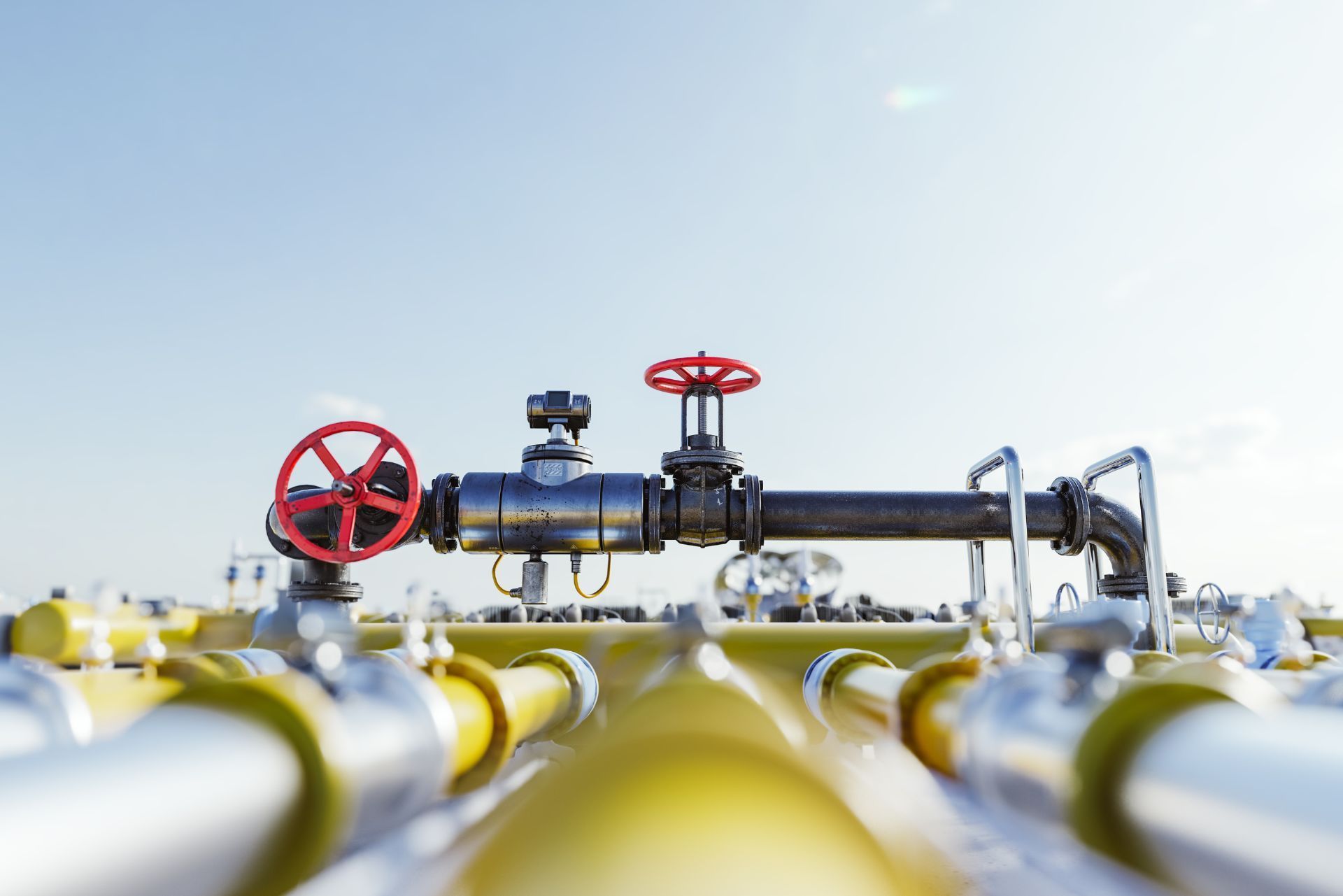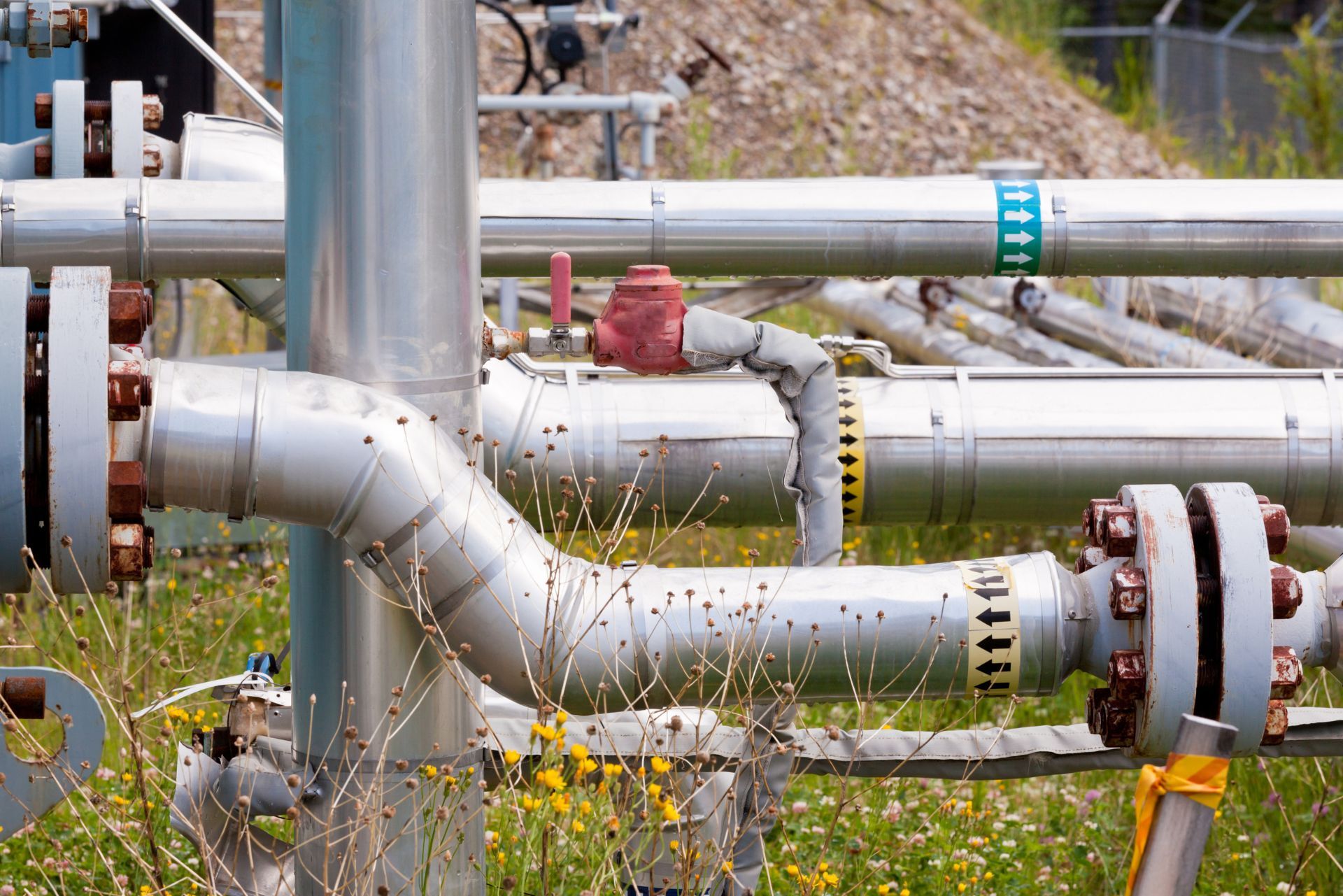Top 3 Recommended Policies

Pipeline pigging is a critical operation in the oil and gas industry, ensuring the integrity, safety, and efficiency of pipeline systems. As manufacturers of pipeline pigs—devices used to clean, inspect, and maintain pipelines—navigate this complex market, understanding the nuances of insurance coverage becomes essential. With the global pipeline pigging services market projected to grow significantly, the stakes for manufacturers are higher than ever. This article explores everything pipeline pig manufacturers need to know about insurance—from risk factors and coverage types to regulatory impacts and emerging industry trends.
Understanding the Pipeline Pig Manufacturing Industry
Pipeline pigs are specialized tools that travel inside pipelines to perform various functions such as cleaning, inspection, and maintenance. The industry has evolved rapidly, especially with the rise of intelligent pigging technologies. Intelligent pigs, which accounted for 58% of the market share in 2023, incorporate advanced sensors and data collection systems to detect anomalies and provide real-time insights into pipeline conditions. These sophisticated devices are capable of identifying corrosion, cracks, and other structural issues that could lead to catastrophic failures if left unchecked, making them an essential component in the maintenance of pipeline integrity.
Manufacturers in this sector face unique challenges, including the need to innovate continuously and comply with stringent safety and environmental regulations. The integration of AI and machine learning into pigging operations has further increased the complexity of manufacturing these devices, demanding higher standards of quality and reliability. As these technologies advance, manufacturers must invest in research and development to stay competitive, often collaborating with tech companies to enhance the capabilities of their products. This partnership not only fosters innovation but also accelerates the deployment of smarter, more efficient pigs that can adapt to various pipeline environments.
Given these factors, insurance plays a pivotal role in protecting manufacturers against operational risks, product liability, and potential financial losses arising from defects or failures in their products. The dynamic nature of the pipeline pig manufacturing industry means that companies must also navigate fluctuating market demands and the economic impact of global energy trends. As the world shifts towards more sustainable energy sources, the pipeline industry is under pressure to adapt, leading to an increased focus on eco-friendly materials and practices in pig manufacturing. This shift not only addresses environmental concerns but also opens new avenues for innovation, as manufacturers explore biodegradable and recyclable materials for their products, thereby reducing their carbon footprint and appealing to environmentally conscious clients.

Key Insurance Risks for Pipeline Pig Manufacturers
Pipeline pig manufacturers operate in a high-stakes environment where equipment failure can lead to severe consequences, including pipeline damage, environmental hazards, and safety incidents. Understanding the primary risks is essential for securing appropriate insurance coverage.
Product Liability
One of the most significant risks is product liability. If a pig malfunctions during operation, it can cause pipeline ruptures or leaks, leading to costly repairs and environmental damage. Manufacturers must ensure their insurance policies cover claims related to defects, design flaws, or inadequate warnings. Additionally, the potential for reputational harm is substantial, as clients may lose trust in a manufacturer whose product has failed. This can lead to decreased sales and long-term financial repercussions, making it imperative for manufacturers to not only focus on insurance but also on rigorous testing and quality assurance processes to mitigate these risks from the outset.
Operational and Manufacturing Risks
Manufacturing pipeline pigs involves complex processes and precision engineering. Equipment damage, supply chain disruptions, and quality control failures can all result in financial losses. Insurance policies that cover property damage, business interruption, and equipment breakdown are vital for mitigating these risks. Moreover, the reliance on specialized materials and components can introduce additional vulnerabilities; fluctuations in the availability or cost of these inputs can disrupt production schedules and inflate costs. Manufacturers should consider investing in risk management strategies, such as diversifying suppliers and implementing robust inventory management systems, to further shield themselves from operational uncertainties.
Regulatory Compliance and Legal Risks
Regulatory frameworks are tightening globally, with mandates such as the European Union’s 2024 Methane Supply Index requiring more frequent inspections of gas transmission pipelines. This increases demand for reliable pigging equipment and raises the stakes for manufacturers to comply with evolving standards. Failure to meet regulatory requirements can lead to fines, litigation, and reputational damage. Insurance policies that include coverage for regulatory investigations and legal defense can provide critical support in navigating these challenges. Furthermore, staying ahead of regulatory changes necessitates ongoing education and training for employees, as well as investment in compliance technologies. By fostering a culture of compliance and proactive risk management, manufacturers can not only protect themselves from legal repercussions but also enhance their competitive advantage in the marketplace.
Types of Insurance Coverage for Pipeline Pig Manufacturers
To safeguard their operations, pipeline pig manufacturers typically consider a combination of insurance policies tailored to their specific risks. Below are the most relevant types of coverage.
Product Liability Insurance
This insurance protects manufacturers against claims arising from injuries or damages caused by their products. Given the technical nature of pipeline pigs and the potential consequences of failure, product liability insurance is indispensable. It not only covers legal fees and settlements but also helps in managing the reputation of the manufacturer, which can be severely impacted by product-related incidents. Manufacturers often invest in rigorous testing and quality assurance processes to mitigate risks, but having this insurance provides an additional layer of security against unforeseen failures.
General Liability Insurance
General liability covers third-party bodily injury and property damage claims that may occur on the manufacturer’s premises or due to their operations. This broad coverage is foundational for any manufacturing business. It extends to incidents such as slips and falls, which can occur in busy manufacturing environments. Additionally, general liability insurance can also cover advertising injuries, protecting manufacturers from claims related to their marketing practices, ensuring that their promotional efforts do not inadvertently lead to legal challenges.
Property and Equipment Insurance
Manufacturers rely on sophisticated machinery and technology, including the latest intelligent pigging devices. Property insurance covers physical assets against risks such as fire, theft, or natural disasters, while equipment insurance protects against breakdowns and malfunctions. This coverage is crucial, as the cost of replacing or repairing advanced equipment can be substantial. Furthermore, manufacturers often invest in specialized tools and technology that are essential for maintaining competitive advantage; thus, having comprehensive property and equipment insurance allows them to focus on innovation without the constant worry of potential financial setbacks due to equipment failure.
Business Interruption Insurance
Unexpected events can halt production, leading to significant revenue losses. Business interruption insurance compensates for lost income during such periods, helping manufacturers maintain financial stability. This type of coverage is particularly important in industries where production schedules are tightly linked to contracts and client expectations. It can also cover ongoing expenses, such as payroll and rent, ensuring that the business can continue to operate smoothly even during challenging times. Manufacturers often conduct risk assessments to determine the appropriate level of coverage needed to safeguard against various disruptions, from natural disasters to supply chain interruptions.
Cyber Liability Insurance
With the increasing integration of AI and machine learning in pigging technology, manufacturers face heightened cyber risks. Cyber liability insurance helps cover damages from data breaches, cyberattacks, and related liabilities. As manufacturers collect and analyze vast amounts of data to improve their products and services, they become attractive targets for cybercriminals. This insurance not only provides financial protection but also often includes access to resources for risk management and incident response, helping businesses develop robust cybersecurity strategies. Additionally, as regulatory requirements around data protection tighten, having cyber liability insurance can assist manufacturers in navigating compliance issues and mitigating potential legal repercussions.
Impact of Technological Advancements on Insurance Needs
The pipeline pigging industry is witnessing rapid technological innovation. The launch of next-generation intelligent pigs with advanced sensors, such as those introduced by leading companies in 2023, has improved inspection accuracy by approximately 40%. These advancements not only enhance operational efficiency but also introduce new risks and insurance considerations.
For instance, the use of AI-driven predictive maintenance tools, which analyze long-term vibroacoustic data to forecast pigging operations, requires manufacturers to manage risks related to software reliability, data integrity, and system failures. Insurance policies must evolve to address these emerging challenges, blending traditional coverage with protections tailored to technology-driven risks.
Manufacturers should work closely with insurers to customize policies that reflect the complexity of intelligent pigging systems and the critical role they play in pipeline safety. Additionally, as these intelligent pigs become more integrated into the broader Internet of Things (IoT) ecosystem, the potential for cyber threats increases. Insurers must consider the implications of data breaches and cyberattacks on both the operational integrity of the pigging systems and the sensitive data they collect. This necessitates a comprehensive approach to risk management that includes cybersecurity measures as part of the insurance framework.
Furthermore, the environmental impact of pipeline operations is also a pressing concern, especially with the growing emphasis on sustainability. Intelligent pigs equipped with environmental sensors can detect leaks and emissions more effectively, which not only helps in regulatory compliance but also reduces the potential for costly environmental disasters. Insurers may need to develop new metrics for assessing environmental risks and liabilities, ensuring that policies not only cover operational failures but also address the broader implications of environmental stewardship in the industry. As the landscape of pipeline management continues to evolve, the collaboration between technology developers, manufacturers, and insurers will be crucial in shaping a resilient and adaptive insurance framework that meets the demands of the future.

Regulatory Environment and Its Influence on Insurance
Regulatory changes significantly impact the insurance landscape for pipeline pig manufacturers. The European Union’s 2024 Methane Supply Index, which mandates quarterly leakage inspections for gas transmission pipelines over 500mm in diameter, exemplifies how increased regulatory scrutiny drives demand for reliable pigging equipment and services.
This regulatory shift effectively triples inspection cycles compared to previous standards, placing greater responsibility on manufacturers to deliver high-quality, dependable products. Insurance providers may adjust premiums and coverage terms to reflect the heightened risk exposure associated with stricter compliance requirements.
Manufacturers must stay informed about evolving regulations and ensure their insurance policies provide adequate coverage for compliance-related risks, including potential fines and legal costs.
In addition to the immediate financial implications, these regulatory changes also encourage innovation within the industry. As manufacturers seek to meet the new standards, they may invest in advanced technologies, such as smart pigging systems equipped with sensors and data analytics capabilities. These innovations not only enhance the efficiency of inspections but also provide real-time data that can help in predicting maintenance needs, thereby reducing downtime and operational costs.
Furthermore, the regulatory environment can foster a more competitive marketplace. Companies that adapt quickly to the new requirements may gain a significant advantage over their slower counterparts. This competitive edge can translate into better market positioning and increased customer trust, as clients are more likely to choose manufacturers who demonstrate a commitment to compliance and safety. As such, staying ahead of regulatory trends is not just a matter of risk management; it is also a strategic business imperative that can shape the future of pipeline pig manufacturing.
More details on the regulatory impact can be found at pmarketresearch.com.
Choosing the Right Insurance Provider
Selecting an insurance provider that understands the unique challenges of pipeline pig manufacturing is crucial. Providers with expertise in industrial manufacturing and energy sector risks can offer tailored solutions that align with the specific needs of pig manufacturers.
Key factors to consider when choosing an insurer include:
- Experience with industrial and technological manufacturing risks
- Ability to customize coverage for intelligent pigging technologies
- Strong claims support and risk management services
- Competitive premiums aligned with the manufacturer’s risk profile
Collaborating with insurers who recognize that intelligent pigging is not just a cost-saving tool but a pillar of public safety and environmental responsibility can lead to more comprehensive and effective insurance programs.
Additionally, it is important to evaluate the insurer's financial stability and reputation in the industry. A provider with a strong financial backing can ensure that claims are paid promptly, which is vital in the event of an incident that disrupts operations. Researching customer reviews and seeking recommendations from industry peers can provide insights into the insurer's reliability and service quality. Furthermore, understanding the insurer's approach to risk assessment and their willingness to engage in proactive risk management strategies can greatly benefit manufacturers looking to mitigate potential hazards associated with pipeline pigging.
Moreover, engaging in discussions with potential insurers about their understanding of regulatory compliance and environmental standards is essential. The pipeline industry is subject to stringent regulations, and an insurer that is well-versed in these requirements can help manufacturers navigate the complexities of compliance while ensuring that their coverage remains robust. This not only protects the manufacturer but also enhances their reputation as a responsible entity within the industry, ultimately contributing to a safer and more sustainable operational environment.
Future Trends in Pipeline Pig Manufacturing and Insurance
The pipeline pigging market is expected to continue its robust growth trajectory, with the global services market projected to reach nearly USD 15 billion by 2032. This growth is fueled by increasing pipeline infrastructure investments and the rising adoption of intelligent pigging technologies.
As the industry advances, insurance products will likely evolve to incorporate coverage for emerging risks such as:
- Cybersecurity threats linked to AI and machine learning systems
- Environmental liabilities due to stricter emissions and leakage regulations
- Supply chain disruptions impacting manufacturing timelines
- Liabilities arising from new sensor technologies and data inaccuracies
Manufacturers should proactively engage with insurers to anticipate these trends and ensure their coverage remains relevant and comprehensive.
Insights into market dynamics and technological progress can be explored further at
globalgrowthinsights.com.
Conclusion
Pipeline pig manufacturer insurance is a multifaceted necessity that protects businesses against a wide range of risks—from product liability and operational disruptions to regulatory compliance and technological challenges. As the pipeline pigging market grows and evolves, manufacturers must stay vigilant in assessing their insurance needs and partnering with knowledgeable providers.
With intelligent pigging technologies becoming the market leader and regulatory frameworks tightening, securing the right insurance coverage is not only a financial safeguard but also a commitment to safety, environmental stewardship, and industry excellence. By understanding the risks, coverage options, and future trends outlined in this article, pipeline pig manufacturers can better navigate the complexities of their industry and ensure long-term resilience.
Contact Us
Phone
Location
9595 Six Pines Dr, Suite 8210, The Woodlands, TX 77380

